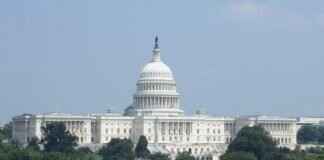The removal of Diversity, Equity, and Inclusion (DEI) books from the U.S. Naval Academy’s Nimitz Library has sparked widespread criticism and debate. A total of 381 titles, covering topics such as race, gender, and national identity, have been rendered “not immediately available,” causing concern among students, faculty, and experts alike. This move comes in response to President Donald Trump’s executive order aimed at combating what he termed “discriminatory equity ideology” and “gender ideology.”
Implications of Book Removal
The decision to remove these books has raised questions about the impact on academic freedom and intellectual development within military academies. Historians and former military officials have expressed deep unease about the potential consequences of erasing critical perspectives from educational settings. Richard Kohn, a military historian, sees this as a regressive step that undermines the progress made in fostering diversity and inclusion. He believes that these removals send a troubling message to cadets, warning them to avoid certain ideas to advance in their military careers.
Retired U.S. Air Force Col. Thomas Keaney, a senior fellow at Johns Hopkins School of Advanced International Studies, emphasized the importance of exposure to diverse viewpoints in education. Keaney highlighted the transformative impact of expanding students’ horizons through reading and critical thinking. He cautioned against limiting access to challenging ideas, stating that intellectual growth requires engaging with differing perspectives.
Democratic Reps. Adam Smith and Chrissy Houlahan denounced the book removal as an attack on freedom of speech and a throwback to McCarthy-era censorship. They have called for transparency regarding the decision-making process behind the removals and urged military academies to halt these actions immediately. The controversy surrounding the removal of DEI books has ignited a broader debate on the balance between compliance with executive orders and the preservation of academic integrity.
Challenges and Responses
Military leaders, faced with the task of implementing these directives, find themselves in a difficult position. The lack of clear criteria for evaluating which books should be removed has left many struggling to navigate the complexities of the situation. Katherine Kuzminski, director of Studies at the Center for a New American Security, highlighted the ambiguity surrounding the policy and the challenges it poses for leadership. She noted that the removal of educational materials without clear guidelines creates confusion and raises concerns about overcorrection.
Department of the Navy officials conducted a thorough review of the Nimitz Library catalog to identify books that required removal to comply with the executive orders. Nearly 400 titles were ultimately selected for removal, with a focus on aligning the library’s collection with the directives outlined by the president. Despite assertions from academy spokespeople that the removals were intended to ensure compliance and uphold the institution’s mission of developing well-rounded officers, critics remain skeptical about the long-term impact on academic freedom and critical thinking.
As the debate over the removal of DEI books continues to unfold, it underscores the broader challenges facing educational institutions in balancing political directives with academic autonomy. The implications of erasing diverse voices from the educational landscape raise fundamental questions about the nature of intellectual inquiry and the role of military academies in shaping future leaders. The controversy serves as a reminder of the ongoing struggle to uphold democratic values and promote open discourse in an increasingly polarized society.














